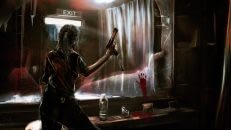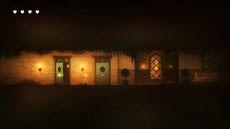Game Connection Europe 2014 Impressions – Machiavillain
As I wrap up my week of Game Connection Europe coverage, I wanted to close with yet another different style of gaming. I’ve covered the latest in Virtual Reality, showcased a social role-playing game driven entirely by user dialogue, taken a look at games that let you customize their stages, as well as the player characters, and previewed a unique variation on cooperative play. My final impression is of a game titled Machiavillain, the latest from Wild Factor, the developer behind the popular Freaking Meatbags RTS currently in Early Access. What makes Machiavillain stand out is that it’s a game that lets players assume the role of the villain, something that still doesn’t happen all too often in gaming.
Machiavillain is, at its heartless core, a parody of horror movies. It’s a simulation strategy game, akin to the likes of Prison Architect and Dungeon Keeper, with the caveat being that the villain is beholden to the silly rules of classic horror films. Those rules include never killing the dog, killing virgins last, and only being able to kill one “hero” at a time. (Unless, of course, two characters are engaged in nighttime acrobatics, in which case you’re free to “slaughter those degenerates.”) The general overview is simple enough: Players build their own manor, design the trap layout, then create monsters to stalk the heroes that inevitably find themselves drawn to the sinister dwelling.
The basic monsters that players start out with are zombies. These zombies have a few abilities, including hiding under a lampshade (which is surprisingly effective) and being able to bite heroes, thus recruiting them to the villains cause. From there, both heroes and the villain have upgraded character types that come into play as the game gets harder. On the heroic side, players will have to find new ways to kill football jocks, as their uniforms offer added protection, and eventually a fully armored swat team. To help bring down these more difficult do-gooders, the player can create werewolves, vampires, and other classic monster movie baddies. Each character type comes with their own unique abilities, so strategy, patience, and careful planning will play a crucial role in success.
As if finding ways to get the heroes alone wasn’t hard enough, players must also manage creature needs and incoming resources. Monsters get hungry and need sleep too, so some rooms of the manor will have to be dedicated to giving the zombies a place to rest, and curl up with a good brain. As victims are claimed, players can build a butcher table to, umm, re-purpose the corpses, using the remains as food for the zombies. This is just one example of how traps, items, and resource management play a role in the game.
To play up the parody aspect of the game, many of the items and characters will be themed after classic and modern horror titles. Players can looked forward to taking down heroes modeled after the Shaun of the Dead crew, for instance, with more to be included in the final version. The current plan is to have 20 different monster types to choose from, so there will be a lot of strategic variety in terms of abilities.
While Wild Factor’s previous game is still in Early Access, the plan for Machiavillain is to launch a Kickstarter campaign sometime in the near future; Wild Factor CEO Alexandre Lautié stated the campaign is likely to begin in February 2015, after Freaking Meatbags is out of Early Access. The game has been in development for three months so far, with Lautié handling the programming while enlisting the help of his girlfriend to do the artwork. (The rest of the team is working on another project.) If all goes well, the game is scheduled to release in Mid-2015 for Windows, with Mac and Linux versions on the horizon if there is enough interest in them. To learn more about Wild Factor, and to keep tabs on both Freaking Meatbags and Machiavillain, be sure to head on over to the developer’s website. You can also follow along on Twitter and Facebook, if you’d rather be sociable about it.





